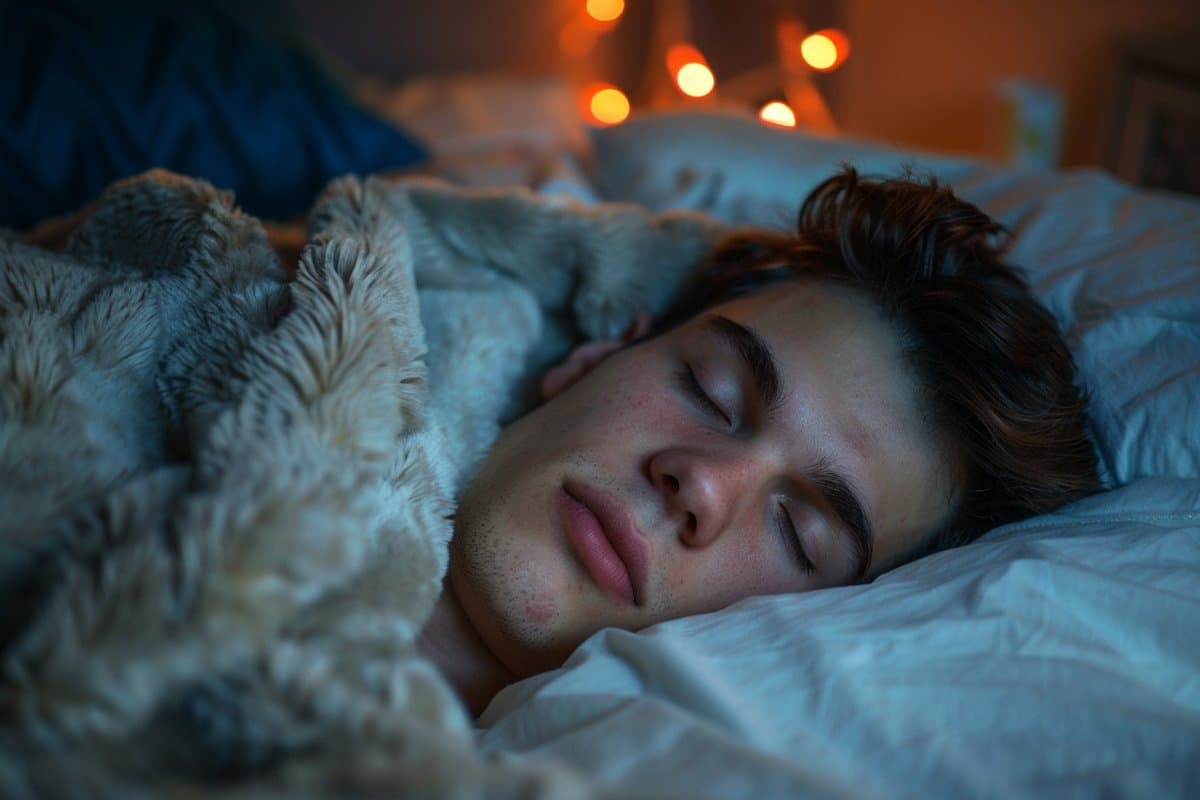Summary: Researchers developed a blood test capable of detecting 24-hour sleep deprivation with high accuracy, offering promising applications for enhancing safety in various contexts.
The test, which combines specific markers in the blood, was shown to identify individuals who had been awake for more than 24 hours with up to 99.2% accuracy under laboratory conditions. This innovation aims to address the global challenge posed by sleep deprivation, particularly in safety-critical roles and situations like driving, where fatigue significantly increases the risk of accidents.
By providing a scientific method to assess sleep deprivation, this breakthrough has the potential to transform health and safety management related to insufficient sleep.
Key Facts:
- High Accuracy Detection: The biomarker test accurately predicts 24-hour wakefulness with up to 99.2% accuracy, dropping to 89.1% in a diagnostic setting without comparison to a well-rested sample.
- Potential for Safety Improvement: Given that 20% of road accidents are caused by sleep deprivation, this test could significantly improve safety by identifying sleep-deprived individuals in contexts such as driving and safety-critical workplaces.
- Future Applications and Research Needed: While promising, the test requires further validation in less controlled environments and potential development for forensic use, as well as exploration of non-invasive testing methods like saliva or breath analysis.
Source: University of Birmingham
A blood test that can accurately detect when someone has not slept for 24 hours has been developed by experts at Monash University, in Australia, and the University of Birmingham, in the UK.
This level of sleep deprivation increases the risk of serious injury or fatality in safety critical situations.
Published in Science Advances, the biomarker used a combination of markers found in the blood of healthy volunteers. Together, these markers accurately predicted when the study volunteers had been awake for more than 24 hours under controlled laboratory conditions.

The biomarker detected whether individuals had been awake for 24 hours with a 99.2 percent probability of being correct, when compared to their own well-rested sample. When a single sample was considered without the well-rested comparison (similar to a diagnostic blood test), it dropped to 89.1 per cent, which was still very high.
With about 20 percent of road accidents worldwide caused by sleep deprivation, researchers hope the discovery may inform future tests to quickly and simply identify sleep-deprived drivers. The biomarker could also be developed for other situations where sleep deprivation may lead to catastrophic consequences, such as in safety-critical workplaces.
Senior author Professor Clare Anderson led the research while she was with the Monash University School of Psychological Sciences and Turner Institute for Brain and Mental Health. She is now Professor of Sleep and Circadian Science at the University of Birmingham in the UK.
“This is a really exciting discovery for sleep scientists, and could be transformative to the future management of health and safety relating to insufficient sleep,” Professor Anderson said. “While more work is required, this is a promising first step.
“There is strong evidence that less than five hours’ sleep is associated with unsafe driving, but driving after 24 hours awake, which is what we detected here, would be at least comparable to more than double the Australian legal limit of alcohol performance wise.”
The test may be also ideal for future forensic use but further validation is required.
First author Dr Katy Jeppe, from the Monash Proteomics and Metabolomics Platform, previously from the School of Psychological Sciences, said it was difficult to say how soon the test could be developed for post-accident use.
“Next steps would be to test it in a less controlled environment and maybe under forensic conditions, particularly if it was to be used as evidence for crashes involving drivers falling asleep,” Dr Jeppe said.
“Given it’s blood, the test is more limited in a roadside context, but future work could examine whether our metabolites, and therefore the biomarker, are evident in saliva or breath.”
This sleep deprivation biomarker is based on 24 hours or more awake, but can detect down to 18 hours awake. A biomarker for limited sleep over the previous night could be developed but more research is required to combine the time since sleep with the amount of sleep in the predictions.
“Much further work would be needed if laws were to change and a sleep deprivation test introduced on the road or in workplaces,” Dr Jeppe said.
“This would include further validation of biomarkers, as well as establishing safe levels of sleep to prevent and recover from impairment, not to mention the extensive legal process.”
“A biomarker for limited sleep over the previous night could be developed, and others have made progress in this respect (Depner et al.).”
Sleep deprivation can have fatal consequences for other safety-critical occupations. Major catastrophes including the Chernobyl nuclear reactor meltdown and the Challenger space shuttle Disaster* are thought to be caused, in part, by human error associated with fatigue.
“Objective tests that identify individuals who present as a risk to themselves or others are urgently needed in situations where the cost of a mistake is fatal,” Professor Anderson said.
“Alcohol testing was a game changer for reducing road crashes and associated serious injuries and fatalities, and it is possible that we can achieve the same with fatigue. But much work is still required to meet this goal.”
Funding: This research was conducted in association with the Cooperative Research Centre for Alertness, Safety and Productivity.
About this sleep deprivation research news
Author: Beck Lockwood
Source: University of Birmingham
Contact: Beck Lockwood – University of Birmingham
Image: The image is credited to Neuroscience News
Original Research: Open access.
“Accurate detection of acute sleep deprivation using a novel metabolomic biomarker – a machine learning approach” by Clare Anderson et al. Science Advances
Abstract
Accurate detection of acute sleep deprivation using a novel metabolomic biomarker – a machine learning approach
Sleep deprivation enhances risk for serious injury and fatality on the roads and in workplaces. To facilitate future management of these risks through advanced detection, we developed and validated a metabolomic biomarker of sleep deprivation in healthy, young participants, across three experiments.
Bi-hourly plasma samples from 2 × 40-hour extended wake protocols (for train/test models) and 1 × 40-hour protocol with an 8-hour overnight sleep interval were analyzed by untargeted liquid chromatography–mass spectrometry.
Using a knowledge-based machine learning approach, five consistently important variables were used to build predictive models. Sleep deprivation (24 to 38 hours awake) was predicted accurately in classification models [versus well-rested (0 to 16 hours)] (accuracy = 94.7%/AUC 99.2%, 79.3%/AUC 89.1%) and to a lesser extent in regression (R2 = 86.1 and 47.8%) models for within- and between-participant models, respectively.
Metabolites were identified for replicability/future deployment. This approach for detecting acute sleep deprivation offers potential to reduce accidents through “fitness for duty” or “post-accident analysis” assessments.






